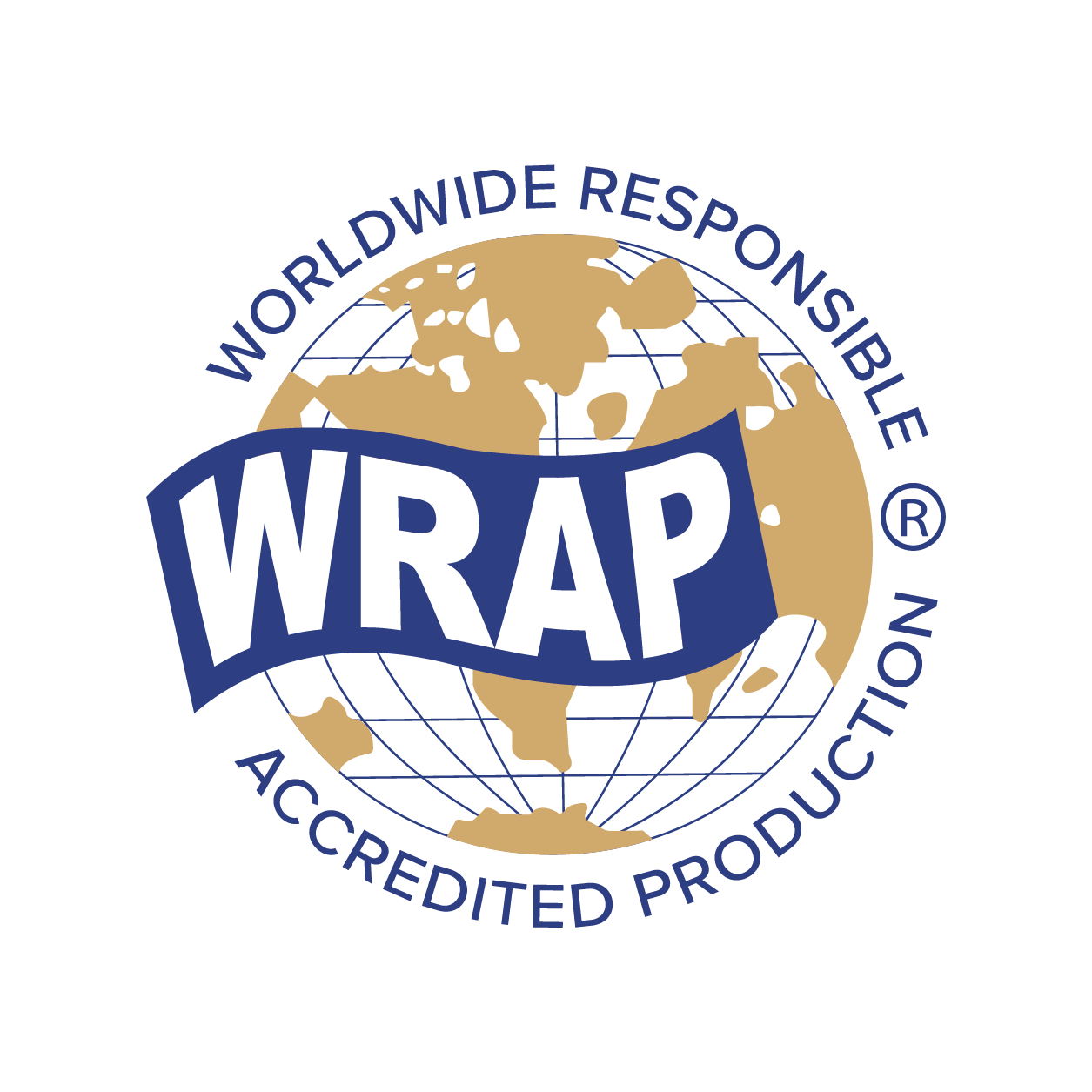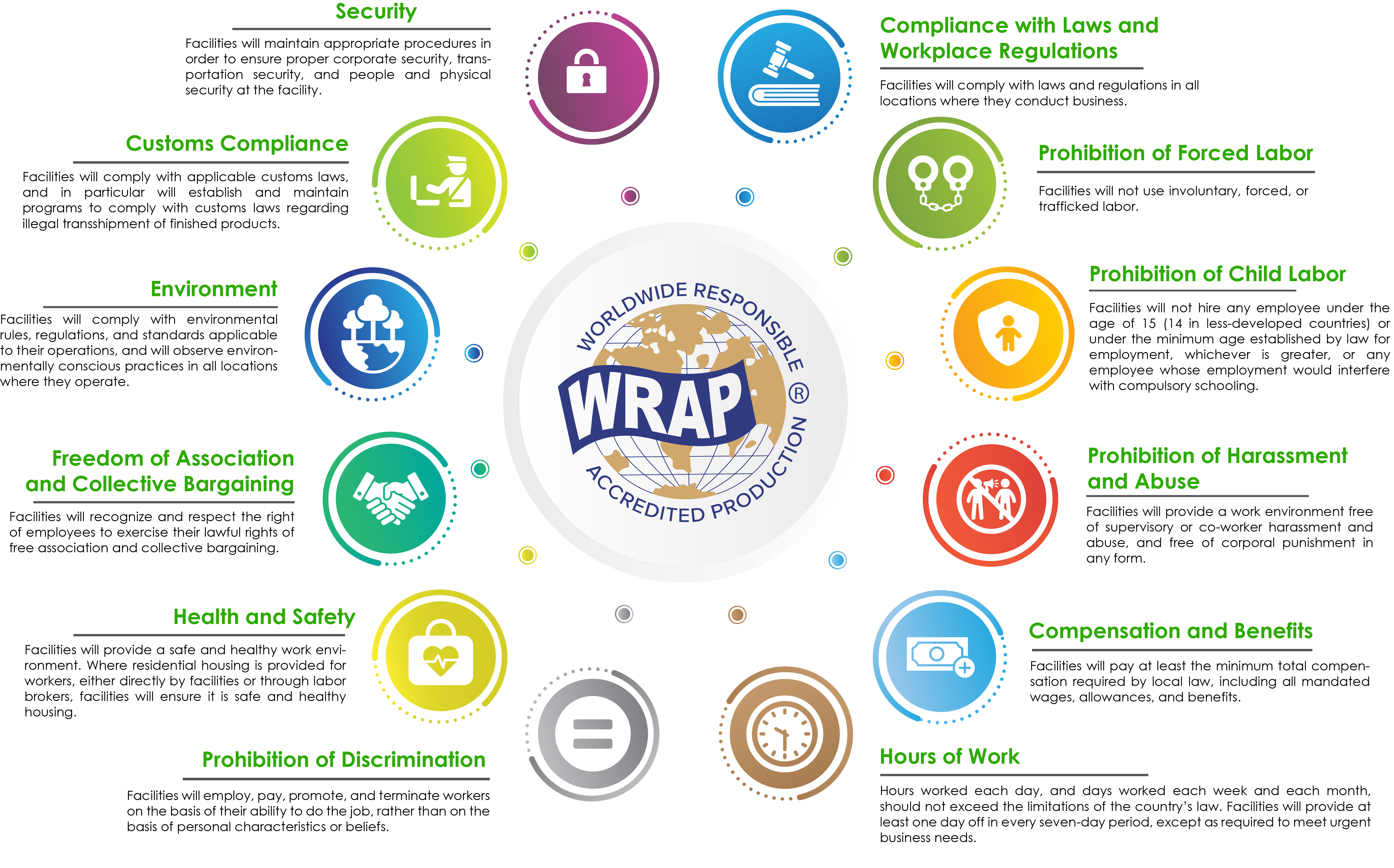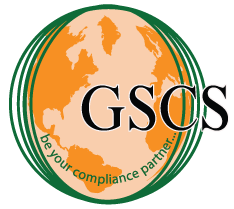
What is WRAP Certification? Importance, Benefits & Compliance Standards
In today’s global supply chain, ethical manufacturing and social compliance are no longer optional — they are business essentials. Brands, retailers, and consumers increasingly demand proof that factories operate responsibly and respect workers’ rights. This is where Worldwide Responsible Accredited Production (WRAP) comes into play.
WRAP is the world’s largest independent certification program focused on workplace compliance. It ensures that factories operate according to internationally recognized labor laws, ethical practices, and environmental standards. For businesses in the apparel, textile, and footwear industries, WRAP certification is a mark of trust that enhances credibility in the global market.
GSCS International., a leading certification and auditing body, is recognized for delivering comprehensive WRAP certification audits across the globe. With a strong focus on social compliance, GSCS helps manufacturers demonstrate their commitment to fair, safe, and responsible production.

What is WRAP Certification?
WRAP stands for Worldwide Responsible Accredited Production, a non-profit organization established in 2000. Its mission is to promote safe, lawful, humane, and ethical manufacturing practices through certification and training.
Unlike many compliance programs, WRAP focuses exclusively on factory-level certification, making it unique in ensuring that production units meet globally accepted standards of social responsibility.
Factories that achieve WRAP certification signal to buyers and international partners that they are committed to:
- Ethical labor practices
- Worker safety and well-being
- Fair wages and working hours
- Environmental sustainability
- Legal and regulatory compliance
The 12 Principles of WRAP
WRAP certification is based on 12 Principles, rooted in universally accepted workplace standards, local laws, and ethical manufacturing practices. These include:
- Compliance with Laws and Workplace Regulations
- Prohibition of Forced Labor
- Prohibition of Child Labor
- Prohibition of Harassment and Abuse
- Compensation and Benefits
- Hours of Work
- Prohibition of Discrimination
- Health and Safety
- Freedom of Association and Collective Bargaining
- Environment
- Customs Compliance
- Security
Each principle addresses critical aspects of workplace responsibility and ensures factories create a transparent, fair, and safe working environment.
Levels of WRAP Certification
WRAP offers three levels of certification, based on the audit score and the degree of compliance with the 12 Principles:
Platinum Certificate – Valid for 2 years; awarded to factories with full compliance and zero major issues.
Gold Certificate – Valid for 1 year; the most common certification level for factories meeting all major WRAP requirements.
Silver Certificate – Valid for 6 months; awarded to factories showing commitment but requiring improvement.
This tiered system motivates factories to continuously improve their compliance practices.
Why WRAP Certification Matters for Factories
Earning WRAP certification brings multiple benefits to manufacturers and brands:
- Global Recognition – WRAP is trusted by leading international retailers and brands.
- Market Access – Many buyers require WRAP certification as a precondition for partnership.
- Risk Reduction – Ensures compliance with labor laws and reduces supply chain risks.
- Worker Well-being – Enhances workplace safety and ensures fair treatment.
- Reputation & Trust – Builds credibility and shows a commitment to corporate social responsibility (CSR).
For brands and importers, sourcing from WRAP-certified factories ensures ethical sourcing, minimizes reputational risks, and supports sustainable supply chains.
The WRAP Certification Process
Getting WRAP-certified involves a systematic process:
1. Application: Factories submit their application and pay the registration fee to WRAP.
2. Self-Assessment: Factories complete a self-assessment questionnaire based on the 12 WRAP Principles.
3. Audit Preparation: Internal compliance teams prepare documents, policies, and practices for inspection.
4. Third-Party Audit: WRAP-authorized auditing bodies, like GSCS International, conduct onsite inspections to verify compliance.
5. Audit Report & Corrective Actions: Non-compliances, if any, are reported, and corrective action plans are implemented by the factory.
6. Certification Decision: Based on the audit results, WRAP grants Platinum, Gold, or Silver certification.
Why choose GSCS International’s in WRAP Certification
GSCS International Ltd. is a trusted certification and inspection company with a strong reputation for ensuring compliance with international standards. As a WRAP-approved auditing body, GSCS helps businesses:
- Conduct WRAP audits with accuracy and transparency
- Train factory staff on social compliance principles
- Provide guidance on corrective actions
- Ensure long-term compliance with WRAP’s 12 Principles
With years of experience in social compliance auditing, GSCS is a reliable partner for factories aiming to secure WRAP certification and build long-term partnerships with global buyers.
Benefits of Partnering with GSCS for WRAP Certification
Choosing GSCS International for WRAP audits offers several advantages:
- Experienced Auditors with expertise in social compliance
- Global Recognition across multiple industries
- Personalized Guidance for achieving certification smoothly
- Continuous Support for maintaining compliance
- Trustworthy Reporting recognized by international buyers
Conclusion
In a world where ethical supply chains are increasingly important, WRAP certification stands as a global standard for responsible production. It ensures factories respect labor rights, comply with laws, and operate sustainably.
With the support of GSCS International., businesses can confidently achieve WRAP certification, strengthen their reputation, and secure long-term partnerships with leading brands.
If your factory is looking to improve workplace compliance and gain access to new markets, start your WRAP certification journey today with GSCS International.
FAQ:
WRAP’s ethical principles include fairness, integrity, transparency, and compliance with the 12 Principles, covering labor rights, worker safety, and environmental responsibility.
A WRAP social audit evaluates factory compliance with labor laws, workplace safety, environmental practices, and ethical treatment of workers.
Steps include: application, self-assessment, audit preparation, third-party audit, corrective actions, and certification issuance.
- Registration & application
- Self-assessment by the factory
- Third-party audit (on-site inspection)
- Corrective action (if required)
- Certification decision (Platinum, Gold, or Silver)
